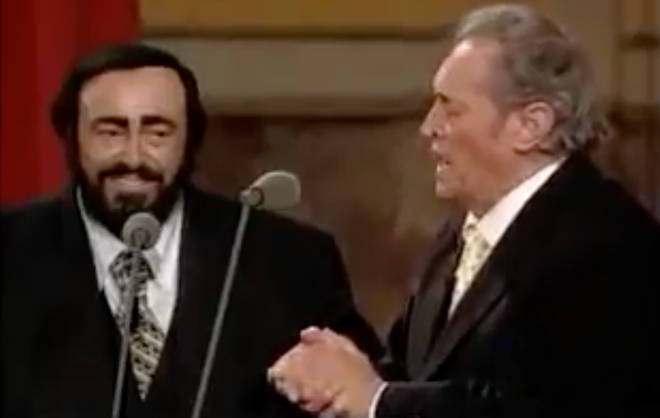It's all about the classical music composers and their works from the last 400 years and much more about music. Hier erfahren Sie alles über die klassischen Komponisten und ihre Meisterwerke der letzten vierhundert Jahre und vieles mehr über Klassische Musik.
Total Pageviews
Thursday, January 5, 2023
Just For You (Concerto) - Ernesto Cortazar - his music and his life
César Franck - his music and his life
César Franck was a composer, pianist, organist, and music teacher who worked in Paris during his adult life. In 1858 he became organist at Sainte-Clotilde, a position he retained for the rest of his life. He became professor at the Paris Conservatoire in 1872; he took French nationality, a requirement of the appointment. His pupils included Vincent d'Indy, Ernest Chausson, Louis Vierne, Charles Tournemire, Guillaume Lekeu and Henri Duparc. After acquiring the professorship Franck wrote several pieces that have entered the standard classical repertoire, including symphonic, chamber, and keyboard works.
Many of Franck's works employ "cyclic form", a method aspiring to achieve unity across multiple movements. This may be achieved by reminiscence, or recall, of an earlier thematic material into a later movement, or as in Franck's output where all of the principal themes of the work are generated from a germinal motif. The main melodic subjects, thus interrelated, are then recapitulated in the final movement. Franck's use of "cyclic form" is best illustrated by his Symphony in D minor (1888).
His music is often contrapuntally complex, using a harmonic language that is prototypically late Romantic, showing a great deal of influence from Franz Liszt and Richard Wagner. In his compositions, Franck showed a talent and a penchant for frequent, graceful modulations of key. Often these modulatory sequences, achieved through a pivot chord or through inflection of a melodic phrase, arrive at harmonically remote keys. Indeed, Franck's students report that his most frequent admonition was to always "modulate, modulate." Franck's modulatory style and his idiomatic method of inflecting melodic phrases are among his most recognizable traits.
Franck had huge hands, capable of spanning twelve white keys on the keyboard.[62] This allowed him unusual flexibility in voice-leading between internal parts in fugal composition, and in the size of the repeated chords which are a feature of much of his keyboard music. Of the Violin Sonata's writing it has been said: "Franck, blissfully apt to forget that not every musician's hands were as enormous as his own, littered the piano part (the last movement in particular) with major-tenth chords... most mere pianistic mortals ever since have been obligated to spread them in order to play them at all."
The key to his music may be found in his personality. His friends record that he was "a man of utmost humility, simplicity, reverence and industry." Louis Vierne, a pupil and later organist titulaire of Notre-Dame, wrote in his memoirs that Franck showed a "constant concern for the dignity of his art, for the nobility of his mission, and for the fervent sincerity of his sermon in sound... Joyous or melancholy, solemn or mystic, powerful or ethereal: Franck was all those at Sainte-Clotilde.
When Luciano Pavarotti sang with his 88-year-old father in an emotional duet
Updated: 3 January 2023, 19:55

By Kyle Macdonald, ClassicFM London
The touching moment when a father joined his son for a very special performance of a beloved sacred song.
When a former baker took to the stage with opera’s biggest star, it was a story about music spanning the generations.
Legendary tenor Luciano Pavarotti was born in 1935 in Modena, Northern Italy. His father, Fernando Pavarotti, was a baker, and his mother, Adele Venturi, a cigar factory worker.
Fernando Pavarotti was an amateur singer with a fine tenor voice. Years later, his son said Fernando had turned down the possibility of a singing career because of stage fright and nerves.
The family was poor in those early days, but his father’s passion for music opened a new world for his son. Luciano’s first encounters with singing and opera came through both his singing and listening to his father’s collection of albums from the great tenors of the day.
Luciano Pavarotti went on to study singing and began singing opera roles in the 1960s. Legendary breakthroughs at the Royal Opera House in London’s Covent Garden and New York’s Metropolitan Opera made a huge star of the opera world.
A few years later, thanks to the 1990 Football World Cup in Italy, The Three Tenors, and his always-glistening high notes, he became a true household name.
But he never forgot where he came from, or his musical roots.
In 2001, 88-year-old amateur tenor Fernando joined his son for a duet. Together they sang César Franck’s ‘Panis Angelicus’.
Nearing 90 years of age, Fernando’s best singing voice may well have been behind him. But it’s the looks of love and pride between the two of them that make this a very special moment of music.
They have duetted in previous years. Here’s another performance of the same sacred song, recorded in the cathedral of their home town in 1978 (watch below).
A baker who loved his music, and a tenor who changed the course of classical music. Two Pavarottis, bravo to you both.


